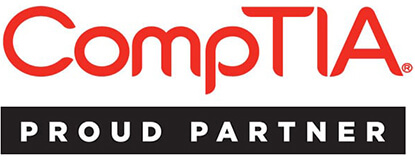The Skills Gap: A Nationwide Problem and How You Can Be Part of the Solution

Article specially written for Asher.edu
By Siegfried Smith
Last October, CNN reported that the US unemployment rate hit a 50-year low at 3.5% — and while this is definitely something to celebrate, there is more to the story than a single statistic can illustrate. With America’s booming economy, more and more companies are creating jobs in the fields of healthcare and information technology at a faster rate than people can gain the skills needed to do them, and states like Nevada have begun feeling the shortage in skills. As the world is in the midst of a new technological revolution, the skillset required for most jobs is evolving, leading to a nationwide problem that has yet to be addressed efficiently: the skills gap in America.
For example, Pfizer, one of the country’s largest multinational pharmaceutical corporations, is making their jobs more tech-based. In the past, a technician would simply need to follow a set of steps to formulate batches of medicine. Today, however, they are required to use computers to mix and analyze medicine while also having basic knowledge of chemistry, biology, data analysis, and lab work. And all across the country, companies big and small have begun to take similar steps, with technology changing the landscape of many industries faster than people can adapt to it.
Unfortunately, many employees aren’t equipped to meet the ever-expanding demand for tech-based skills. Although unemployment rates are down, companies have an inadequate number of members in the workforce to meet the most important roles, and too many people struggle to find a job where they can grow and contribute to the best of their ability.
Solutions from the Industry and Schools
To help address America’s skills gap, industries and schools alike have begun finding solutions to help equip people with the skills companies are looking for. Case in point, Boeing secured a commitment from the state of Washington to advance STEM (Science, Technology, Engineering, and Mathematics) education in public schools to encourage students to develop an interest in and a passion for technology. And it doesn’t stop there. Boeing, along with the likes of investment giant Edward Jones, has even forged a partnership with Maryville University in a bid to prepare college students for degree programs geared towards jobs that do not exist yet — but likely will very soon. This direct connection to America’s basic and higher education institutions allows companies to be able to help shape the leaders of tomorrow, and prepare a future workforce that is equipped to meet the ever-growing demand for tech-based skills.
Meanwhile, one of America’s most powerful companies, Amazon, has partnered with over 30 public schools in its home city of Seattle to help provide for computer science and robotics programs. Moreover, the technology behemoth is supporting 100 schools in 22 states through its Future Engineer program, which funds the STEM education of students. For companies to flourish and Americans to be prepared for future jobs, it is crucial that they are properly educated for the labor landscape’s digital future.
How You Can Be Part of the Solution
The initiatives described above are all well and good, but at an individual level, it is important for you to identify what skills companies are looking for in an employee. From there, you should enhance the ones that you have, and develop ones that you don’t. This way, not only will your resumé look more attractive to employers, but you will also have the ability to better perform your tasks at your current place of work.
According to CompTIA, leaders in the IT industry are concerned that too many workers still need to develop their skills to meet company demands. The tech trade association has found that the top seven IT skill areas that need to be addressed are: emerging tech, application integration, cloud infrastructure, digital business transformation, cybersecurity, software development, and data management/analytics. However, there’s no need to fret if you haven’t had the chance to master your skills in those areas, as there are universities and colleges that can help you cultivate them.
Asher College, which has campus locations in Las Vegas, Nevada; Sacramento, California; and Dallas, Texas offers educational programs for in-demand careers in information technology, alongside business and medical professions. Courses are hands-on and taught by industry professionals, whom you can learn from on a flexible schedule that can be spaced out in less than a year. So if you are interested in taking that first step towards professional growth and joining the ranks of those prepared for the digital work landscape, consider attending Asher College to get the training you need. Give us a call at 888-211-8829 to speak with one of our helpful and friendly admissions representatives






